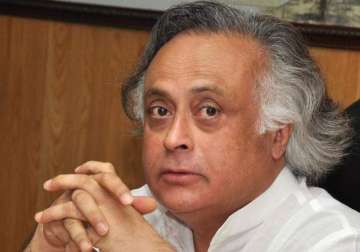New Delhi: The Congress on Friday accused Prime Minister Narendra Modi of having a "deep nexus" with Lalit Modi and bluntly told the government that there was no way out other than the resignation of Sushma Swaraj and Vasundhara Raje for "saving" the monsoon session of parliament.
"This is now an issue of deep nexus between a proclaimed offender and the Prime Minister, the External Affairs Minister, the Rajasthan Chief Minister and the BJP president," senior Congress leader Jairam Ramesh told reporters seeking to link the Prime Minister and Amit Shah with the controversy.
Mr. Ramesh said that in 2009, Mr. Narendra Modi, who was then Gujarat Chief Minister, became Gujarat Cricket Association president and industrialist Gautam Adani was made commercial promoter.
Noting that five years later, the current BJP president was made GCA president while Mr. Adani continued to be promoter, he said that this was "not my allegation, facts available in public domain".
Besides, he claimed that the "Lalit Modi-Gautam Adani nexus" has been clearly established by the documents now in public domain.
Alleging that the "silence" of the Prime Minister on the issue is "deafening" and is a "definite proof" that the BJP's topmost leadership has "many things to hide", he said the PM has not been speaking because the "unholy nexus is now surfacing".
"The government has got caught in a trap of its own making. The only way out for the PM for the survival of his government and saving the monsoon session of Parliament is resignation of Sushma Swaraj and Vasundhara Raje," he said.
Asked what action the Congress was seeking against the PM and the BJP chief in view of the alleged nexus with Mr. Lalit Modi, Mr. Ramesh remarked that "as a first step" the resignation of Ms. Swaraj and Ms. Raje.
A senior Congress leader, who declined to be identified, said that the party would like a larger opposition coalition on the issue of the Lalit Modi row like the one which had taken shape against the controversial land acquisition bill.
The monsoon session of parliament generally starts in the third week of July.
